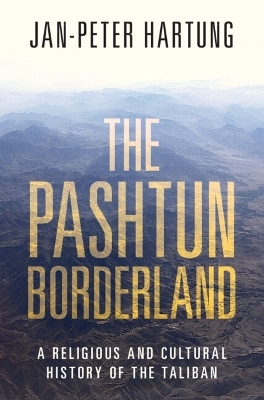
The Pashtun Borderland
A Religious and Cultural History of the Taliban
Seiten
2024
Cambridge University Press (Verlag)
978-1-009-28927-6 (ISBN)
Cambridge University Press (Verlag)
978-1-009-28927-6 (ISBN)
- Noch nicht erschienen (ca. Dezember 2024)
- Versandkostenfrei
- Auch auf Rechnung
- Artikel merken
A history of the religious and socio-political developments in the Pashtun borderland of modern Afghanistan and Pakistan since the 17th century, and how these have informed the worldview of the various Taliban organizations of present times.
Since the Taliban returned to power in Afghanistan in 2021, the need to understand the group's history and ideology has only increased. Jan-Peter Hartung's timely study examines the phenomenon of the Taliban through a topographically, ethnically and geo-politically distinct space: the Pashtun Borderland of today's Afghanistan and Pakistan. Emphasising the central role of Pashtun ethnicity, Hartung covers approximately five hundred years of Pashtun history: from the early modern Mughal empire to the first Durrani Empire in the eighteenth century and the regional developments during the colonial period in the nineteenth and early twentieth century. Drawing from a wealth of primary source materials in Pashto, Persian, Urdu and Arabic, Hartung moves the discussion of the Taliban beyond the immediacy of journalistic reportage and security-orientated studies, to a nuanced analysis of a wide range of actors and ideologies, refracting Afghanistan's present moment through the lens of its long cultural and religious history.
Since the Taliban returned to power in Afghanistan in 2021, the need to understand the group's history and ideology has only increased. Jan-Peter Hartung's timely study examines the phenomenon of the Taliban through a topographically, ethnically and geo-politically distinct space: the Pashtun Borderland of today's Afghanistan and Pakistan. Emphasising the central role of Pashtun ethnicity, Hartung covers approximately five hundred years of Pashtun history: from the early modern Mughal empire to the first Durrani Empire in the eighteenth century and the regional developments during the colonial period in the nineteenth and early twentieth century. Drawing from a wealth of primary source materials in Pashto, Persian, Urdu and Arabic, Hartung moves the discussion of the Taliban beyond the immediacy of journalistic reportage and security-orientated studies, to a nuanced analysis of a wide range of actors and ideologies, refracting Afghanistan's present moment through the lens of its long cultural and religious history.
Jan-Peter Hartung has a MA in South and Central Asian Studies and Philosophy and a doctorate Study of Religions and a senior doctorate (Habilitation) in the Study of Islam. His special focus is on South Asia and the wider Persianate world from around the 18th century to the present.
1. Introduction; 2. Setting the Stage: Conceptualizing the 'Pashtun Borderland'; 3. Chief Trajectories of Militant Religious Activism in the Pashtun Borderland: The Antecedents; 4. Chief Trajectories of Militant Religious Activism in the Pashtun Borderland: Acceleration in the Twentieth and Twenty‑First Centuries; 5. Epilogue: Who and What Were – and Are – (The) Taliban?; Bibliography.
| Erscheinungsdatum | 02.10.2024 |
|---|---|
| Zusatzinfo | Worked examples or Exercises |
| Verlagsort | Cambridge |
| Sprache | englisch |
| Gewicht | 963 g |
| Themenwelt | Geisteswissenschaften ► Geschichte ► Regional- / Ländergeschichte |
| Geisteswissenschaften ► Religion / Theologie ► Islam | |
| Sozialwissenschaften ► Politik / Verwaltung ► Europäische / Internationale Politik | |
| ISBN-10 | 1-009-28927-6 / 1009289276 |
| ISBN-13 | 978-1-009-28927-6 / 9781009289276 |
| Zustand | Neuware |
| Haben Sie eine Frage zum Produkt? |
Mehr entdecken
aus dem Bereich
aus dem Bereich
Erinnerungen
Buch | Softcover (2024)
Pantheon (Verlag)
CHF 22,40


